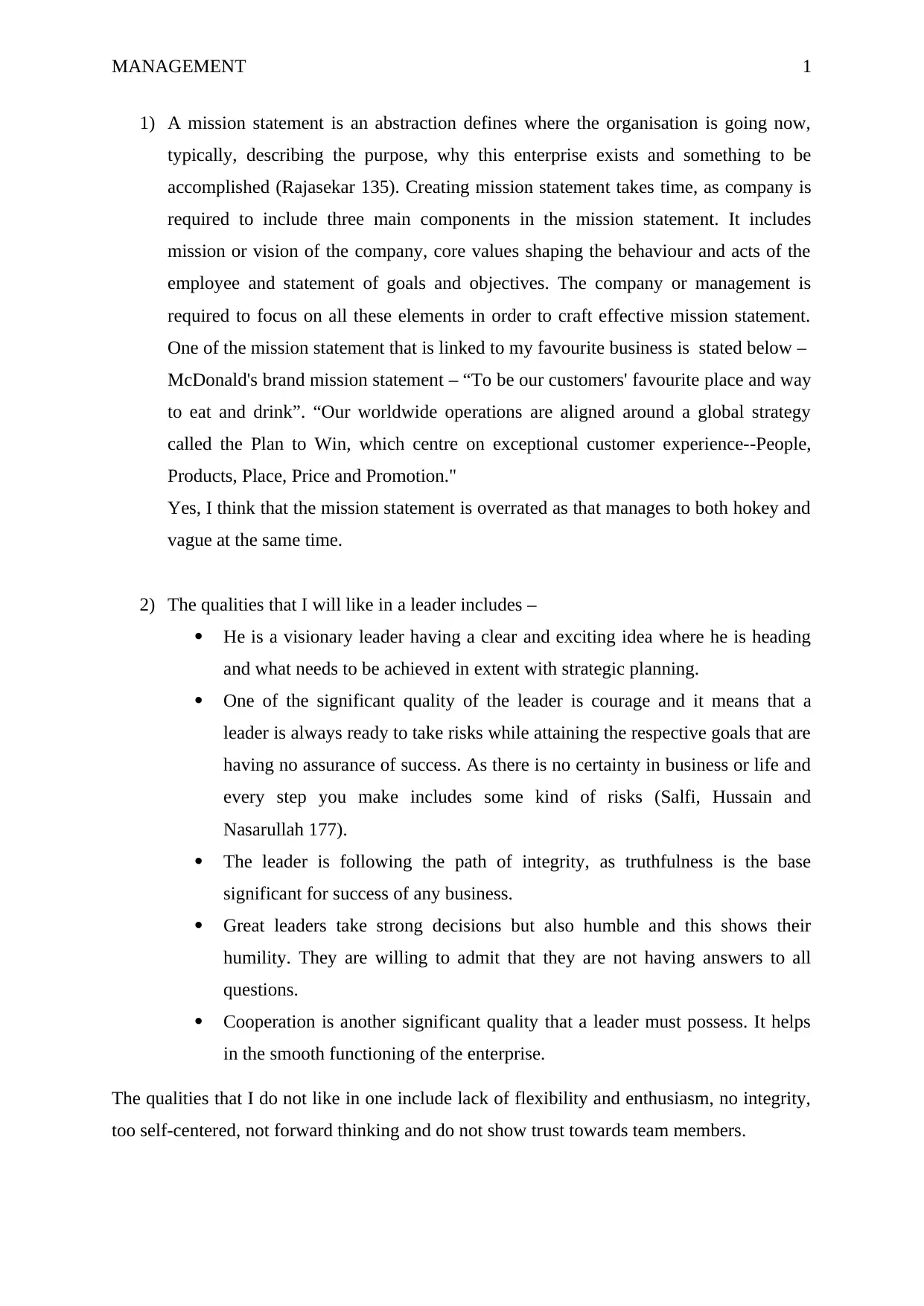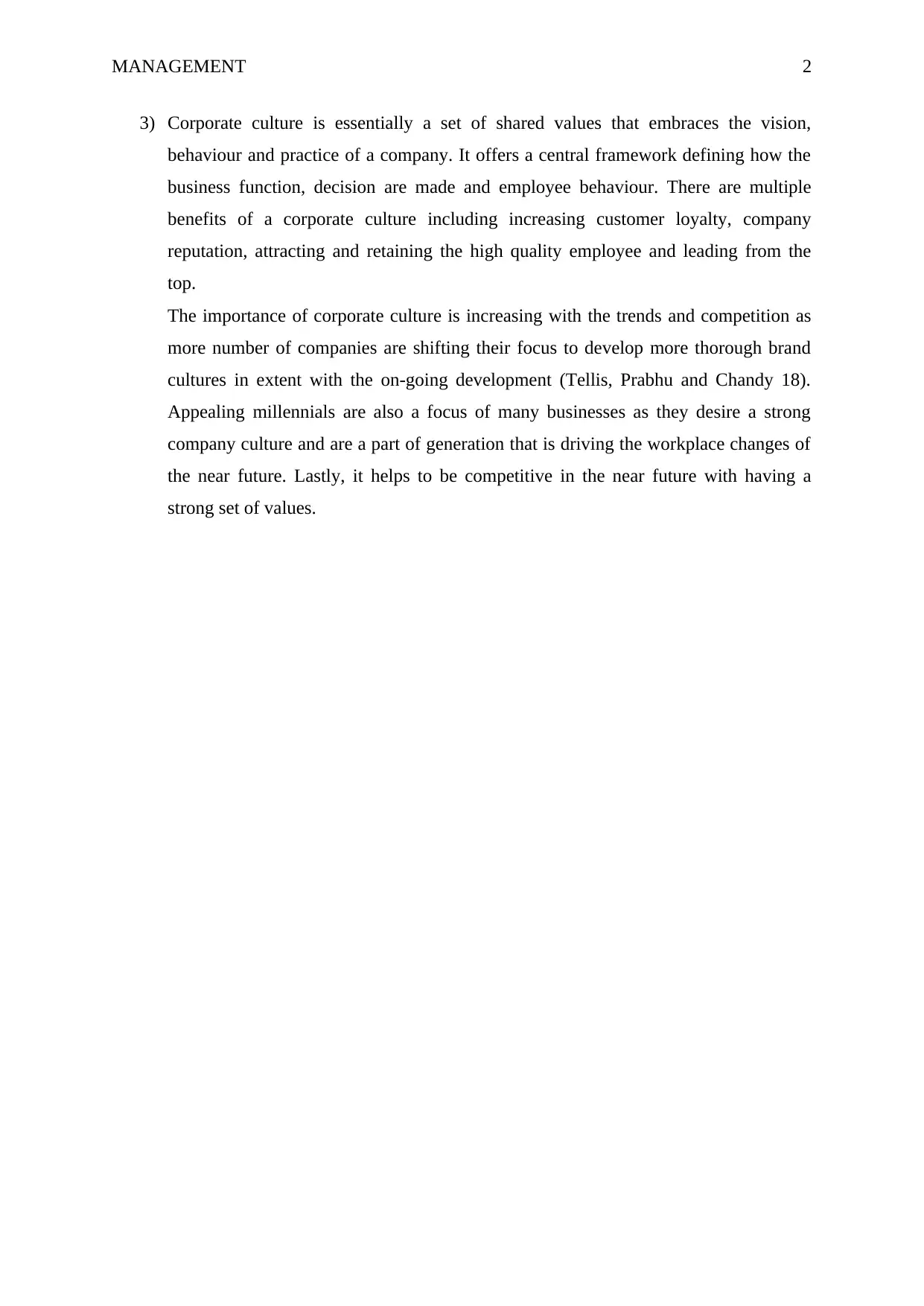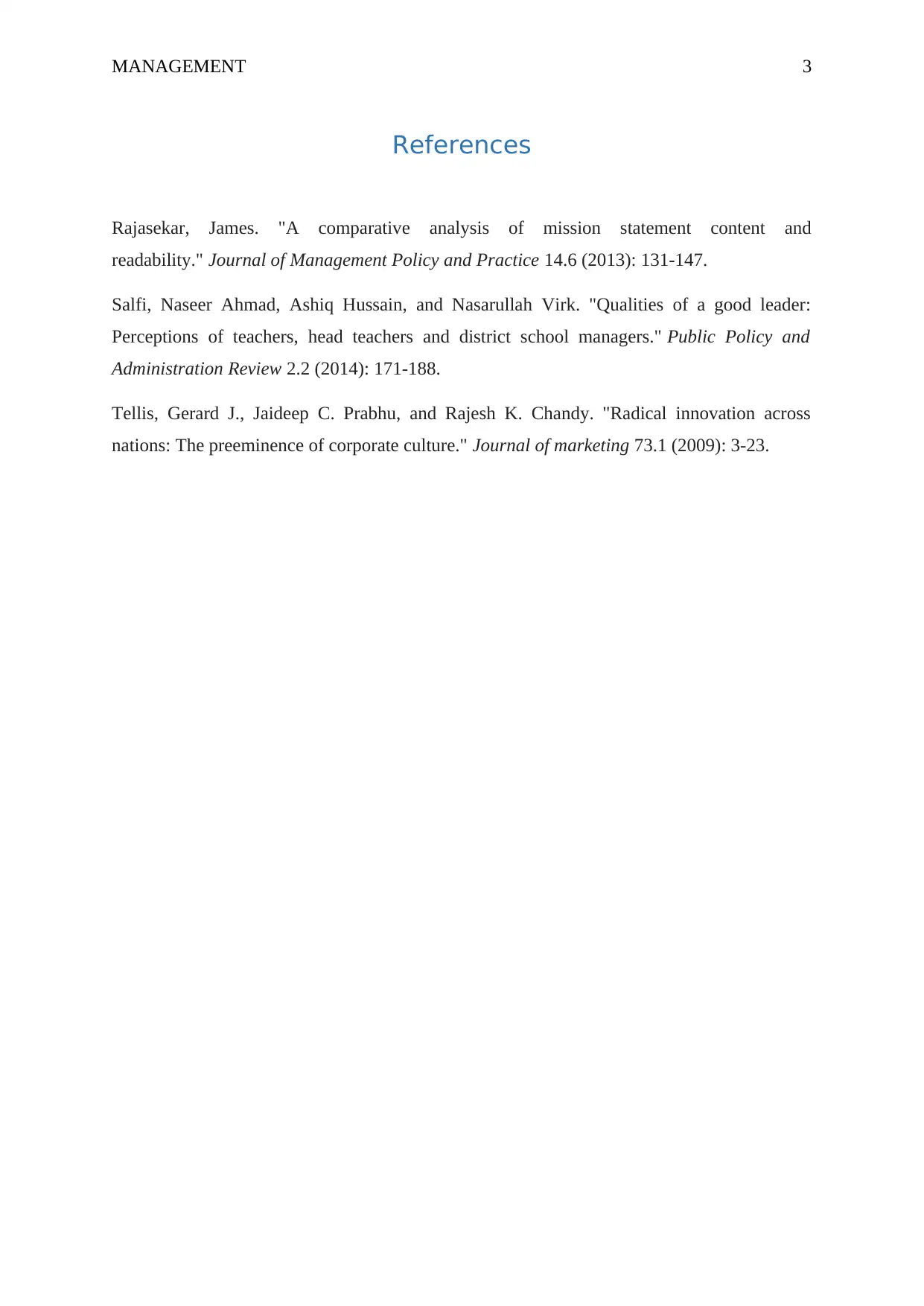Mission Statements, Leadership, and Corporate Culture Analysis Report
VerifiedAdded on 2022/12/30
|4
|686
|35
Report
AI Summary
This report analyzes the significance of mission statements, leadership qualities, and corporate culture in business. It begins by defining a mission statement and its key components, using McDonald's as an example. The report then explores desirable leadership qualities, such as vision, courage, integrity, humility, and cooperation, while also addressing undesirable traits. Finally, it examines the importance of corporate culture, highlighting its benefits such as increased customer loyalty and employee retention, and its role in adapting to changing workplace trends. The report emphasizes how a strong corporate culture is crucial for long-term competitiveness and overall business success. This analysis provides insights into effective management strategies and the interconnectedness of these critical business elements.
1 out of 4











![[object Object]](/_next/static/media/star-bottom.7253800d.svg)